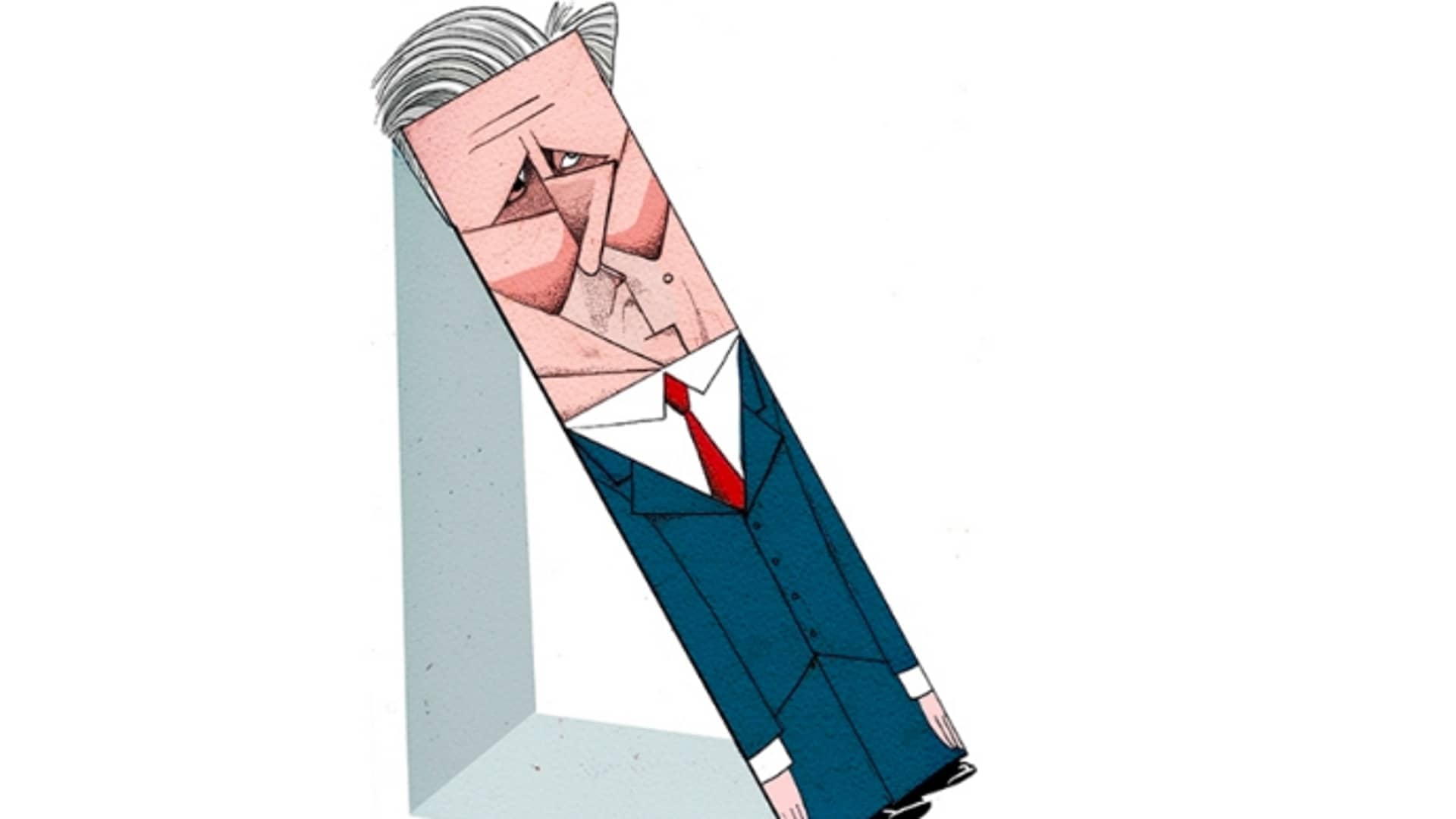Keir Starmer is the master of all he surveys. Thanks to partygate, Labour now enjoys a consistent poll lead over the Conservatives and his personal ratings are significantly ahead of those of the beleaguered Boris Johnson. This has given him more confidence to take on some of Corbynism’s sacred cows. But can he persuade Labour members he is the change the party needs to win power?
Starmer has firmly rejected attempts by Unite, Britain’s largest trade union and a key Corbyn backer, to shape party policy. Amidst the build up of Russian troops on the border of Ukraine, Starmer has also been quick to emphasise his support for Nato. For good measure, he has attacked Jeremy Corbyn’s favourite anti-imperialists, Stop the War.
Since Starmer became leader there has been a drift from Labour amongst those who swelled its ranks to support Corbyn’s failed attempt to transform it into a hard-left organisation. Laura Pidcock’s recent resignation from Labour’s National Executive Committee was part of this broader trend. Pidcock was once seriously mooted as Corbyn’s successor. But the disastrous 2019 election and her own defeat in the once rock-solid seat of North-West Durham put paid to that. Pidcock has nonetheless remained popular with party members; in 2020 she came second highest in elections for the NEC. There she and her confreres hoped to frustrate Starmer’s untangling of the Corbyn legacy. But after their demand that the former leader be given the Labour whip back was easily defeated, she threw in the towel. Pidcock remains a party member but others who share her views have joined various splinter and spoiler groups, organised under the hopeful banner of the People’s Alliance of the Left.
Starmer is currently more tolerated than loved by party members
For now, Starmer’s leadership looks safe from a Corbynite resurgence: it is now his party more than it ever was. In demonstrating his iron grip over the party, has he become the true heir to Blair?
There was a time Tony Blair hoped he had also transformed Labour into his own image. In 1995 Blair held a plebiscite over his proposal to change clause four of Labour’s constitution, which since 1918 had committed it in principle to nationalisation. The clause was, Blair wrote in his memoirs, ‘a graven image, an idol’, one irrelevant to the modern world but which nonetheless beguiled party members. Yet Blair convinced a staggering ninety per cent of members to support his more market-friendly formulation. It was a moment that led Blair to believe he had finally recast his party’s culture: it really now was New Labour.
Yet despite winning three general elections, subsequent events – notably Corbyn’s election as leader in 2015 – indicated Labour culture remained little different to the one Blair had inherited from John Smith. All he had proved was that members were willing to tolerate a moderate leader they did not much care for while they looked likely to deliver power. But when Blair’s election-winning success appeared to have become a thing of the past, they turned to more familiar friends on the left who scorned Blair’s new party.
As for Starmer, it is true that so far as many Labour members are concerned their leader is currently more tolerated than loved. Labour’s values, beliefs, and emotions – the same ones that sustained Corbynism – have not disappeared, even if the far left is currently in retreat. So the danger for Starmer is this: how will members react when Johnson is replaced by a new Conservative leader who might start gobbling up his poll lead?
As Blair found out, changing Labour’s culture is no easy thing and Starmer has plenty of other more pressing tasks ahead. But the recent publication of Rethinking Labour’s Past suggests some of those working in support of Starmer’s leadership have clear ambitions on that front. It is edited by the director of Progressive Britain, only established last year and which seeks to provide the thinking that will promote what it believes is a necessary fundamental reconstruction of the party. The book brings together various historians (including, I should confess, me) to analyse key aspects of Labour’s past and to promote what might be termed a non-Corbynite view of the party’s history. That Rachel Reeves and Nick Thomas-Symonds also make contributions shows the initiative has support from within the shadow cabinet.
The basis of the book is that to successfully tackle the challenges of the present, Labour needs a de-mythologised understanding of its history. This has proved a difficult task under previous leaderships. Why? Because Labour members are apt to embrace a nostalgic view of that past, one consisting of socialist heroes and militant struggles. How some recalled the fiftieth anniversary of the ‘Battle of Saltley Gates’ is a case in point.
Corbyn tapped into this misty-eyed view of the past as leader, one best defined by the brass bands of the Durham Miners’ Gala, which has become a heritage event as directed by Ken Loach. It is a wonderful if mostly bogus version of history, one which gave heart to the party as it crashed to defeat in 2019. Yet as party chair Ian Lavery discovered as he toured the north trying to persuade working-class voters to remember the glorious days of the 1984-5 miners’ strike and vote Labour during that campaign, it is not one with many echoes outside the party’s ranks.
It will take more than one book to change Labour members’ attitudes to their own party’s past. But if the effort is sustained and Starmer continues to ride high in the polls there is some hope he might win his own version of the culture war.







Comments